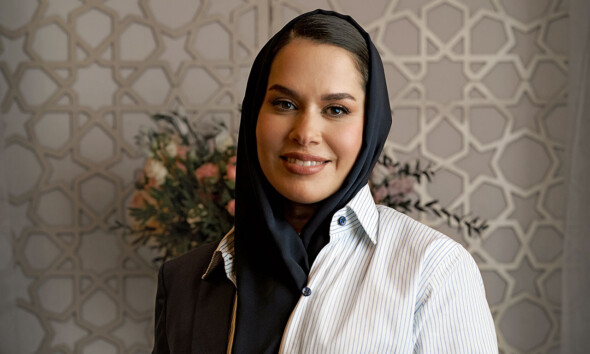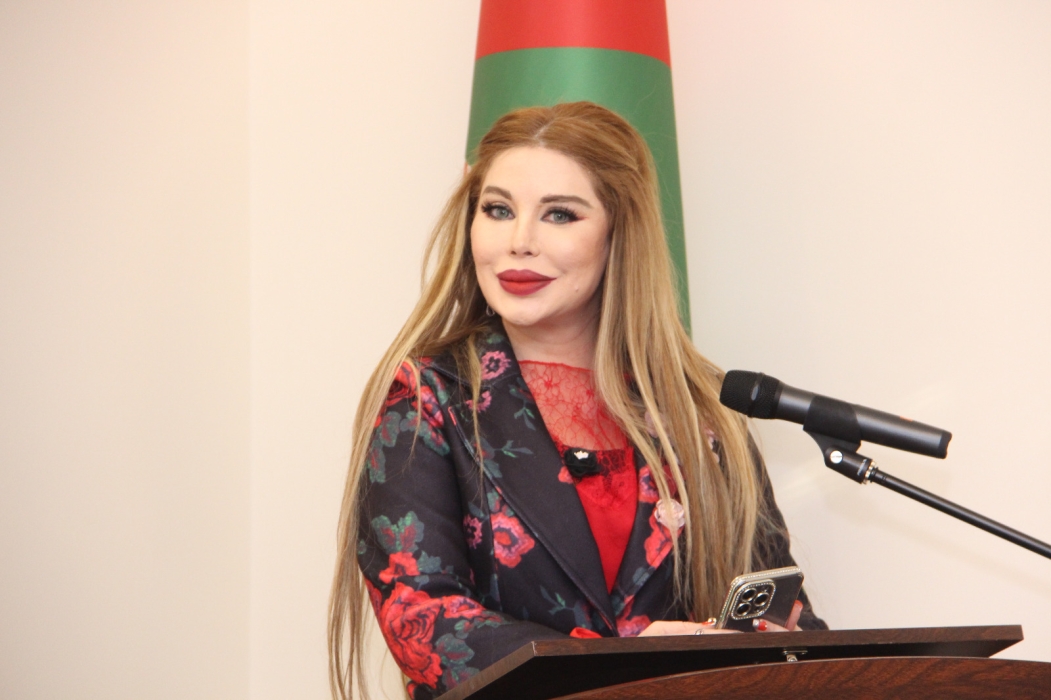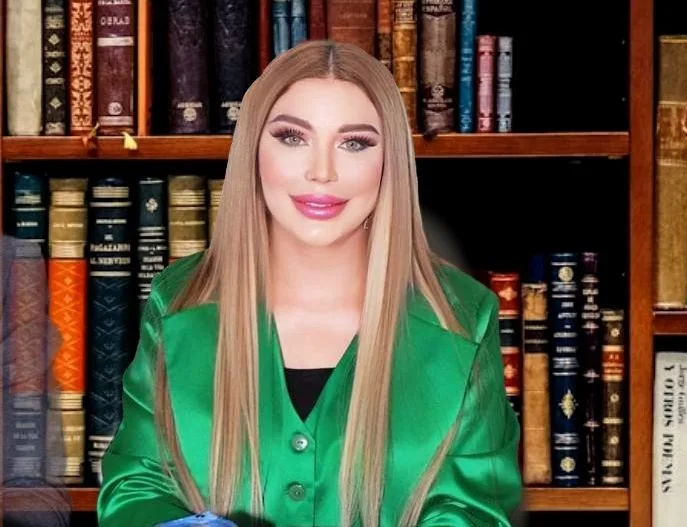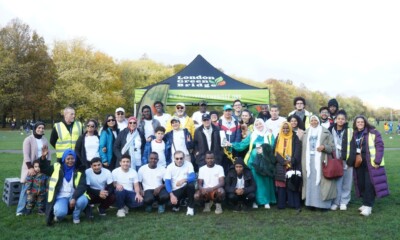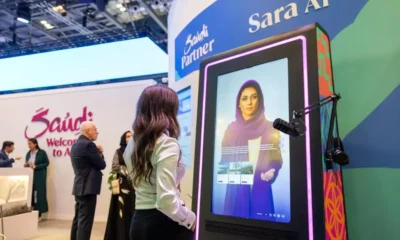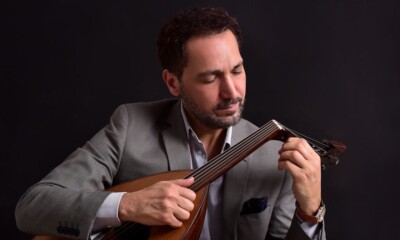Home » Interviews » Writer Sarah Al-Suhail to Arabisk London: Human Trafficking is the Most Horrific Crime Against Mankind, With Juvenile Recruitment into War is an Hourly Issue
Interviews
Writer Sarah Al-Suhail to Arabisk London: Human Trafficking is the Most Horrific Crime Against Mankind, With Juvenile Recruitment into War is an Hourly Issue
Published
8 months agoon
By
Huda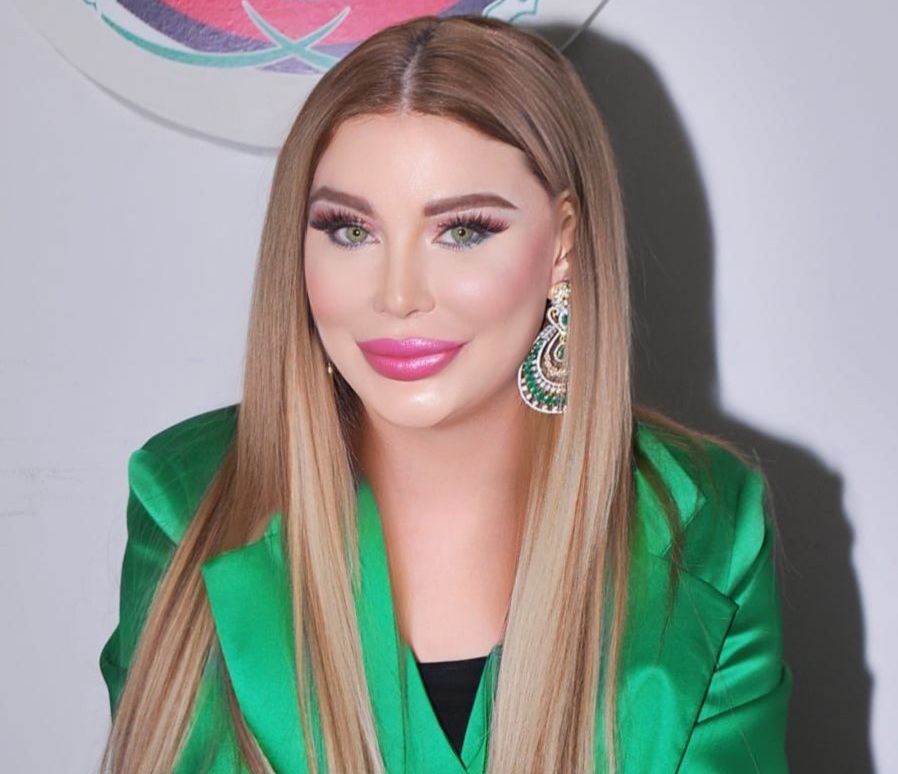
Writer Sarah Al-Suhail to Arabisk London: Human Trafficking is the Most Horrific Crime Against Mankind, With Juvenile Recruitment into War is an Hourly Issue.
Interviewed by: Mohsen Hassan
Gliding across space like a nomadic bird that never gets tired, and neither does space get bored with it. You do not sense any hint of affectation or arrogance when you speak with her or her speaking with you.
Instead, you sense a shared space for honest and profound human communication as well as an unrestrained desire to express vast, boundless horizons of happiness and sadness, pleasure and pain, past and present, as well as other horizons of forgiveness and remission, gained from the trauma and cruelty of childhood.
That tragedy began on April 12, 1994, while she was a youngster attending school in Beirut, Lebanon, under Saddam Hussein’s regime, Iraqi intelligence assassinated her father Sheikh Talib Al-Suhail.
This incident left an indelible mark on everything in her immediate environment and beyond. It also strengthened her resolve to confront the impossibility, attain self-realisation, and fulfil her father’s vision of cheering up the downtrodden and restoring pride and dignity to the weak and disenfranchised.
Above all, to realise his vision of an Iraq enshrouded in law, humanism, and creative forces; topped with security and democracy; brimming with love and wealth; and ruled by an authority honouring all races and origins.
Sarah Talib Al-Suhail is an Iraqi poet and writer who highlights this dialogue.
She feels that the true meaning of life is the act of giving, not the quantity of years.
Firstly, what stands out as your favourite London memories? What about the ladies of the British Royal Palace appeals to you, Sarah Al-Suhail?
When I was a young student living in London, my passion led me to observe the legacy of the empire that never set.
My curiosity also drew me to learn more about the ancient civilisation of this place, and I came to realise that the British royal tradition, history, and ancient buildings are key components of all of this.
In London, the capital, there are scenes of the changing of the royal guard as well as palaces and royal halls embellished with historic artwork.
With her understated smile, personality-driven wardrobe, and unique sense of style that befitted her age and rank, I found the late Queen Elizabeth II to be among the most beautiful ladies in the palace.
Her colour scheme was vibrant, which I adore. With her well-known pearl necklace and brooch, she exuded dignity and modesty as a woman.
Diana, Princess of Wales, what about her?
Despite the years that have passed since she left our world, Princess Diana, Duchess of Wales, continues to inspire me with her radiant beauty and amazing grace.
She is particularly admirable for her interest in children and her instinctive, loving care for them. Caring for children is also a psychological and spiritual thread that unites us; it is the subject of my interest and ongoing obsession.
In addition to being an honest, impulsive, and innocent woman, and as of right now, I think Kate Middleton is also good-hearted.
As an Iraqi intellectual, what innovative alternative does Sarah Al-Suhail offer for controlling Iraqi tribes’ relationships with the reform route aimed at empowering women politically, economically, and socially?
Regrettably, among the Middle Eastern and North African nations, the percentage of Iraqi women working in the national workforce does not surpass 11%. This may be attributed to the impact of societal norms that impede the accomplishment of professional objectives and the social and economic advancement of women.
It takes time to transform tribal notions since doing so means acknowledging the risk of Iraqi women’s place in society continuing to deteriorate and acknowledging society’s need for this role in growth and development.
Afterwards, concentrate on the notion of altering things for the good of society overall and the tribal fabric specifically. The need for women to have social authority that does not contradict masculine norms must be made known to the tribes, and they must be allowed to pursue higher education, develop their cultures, and enter politics while being heard by and protected by the tribal leaders.
Where, in your perspective, does the empowerment of women—Iraqi women specifically—start?
I anticipate that a woman’s empowerment starts at home, where her husband should treat her with dignity and respect before letting her go elsewhere.
A woman’s parents and relatives shape her character, fortitude, and self-assurance. We will have made progress if she is brought up to be seen as a valuable individual whose opinions matter.
I constantly worry that women, and Iraqi women especially, would be tricked into thinking that their societal function is nothing more than cosmetics, fashion, and vulgarity. For that was their ruse to keep her out of the roles they thought she should play and the places where she should succeed.
A serious woman will likely find it difficult to persuade her family and clan to support her career choice due to the vulgarity of some celebrities and their exaggeration of insignificant details. This is because the clan will likely assume that vulgarity is the model that represents the unfortunate fate of working women in society.
How would Sarah Al-Suhail characterise the situation in Iraq and the Arab world, considering the incidence of juvenile recruitment in conflicts and wars?
The recruitment of youngsters into battles and wars is an issue that arises hour after hour. It started in Iraq, amid the backdrop of ISIS and its allies’ crimes against children and humanity. Innocent children were forced to become criminals.
Due to ongoing hostilities and the children who become war victims as a result of Takfiri groups using them to carry out deeds that damage a person’s humanity and his intrinsic passion for peace, security, justice, and freedom, this epidemic soon expanded throughout other Arab countries.
To recover their lost purity and squandered humanity, these kid victims require Arab help in their collection and mental, psychological, and spiritual rehabilitation.
Additionally, we must never forget that it is our duty to stop kids from joining the armed forces, drug cartels, the weapons trade, child labour, human trafficking, and vice networks.
Regarding the advancement of Gulf women’s rights, what are your thoughts? How much do you think this approach has gratified you, Sarah Al-Suhail?
Gulf women have made significant progress in their education and ability to compete with men in all professional fields. In my opinion, they have greatly exceeded expectations, won the respect of their community, and secured numerous significant social liberties in the process of fighting for many just rights, such as the ability to inherit property or full equality with men.
Thanks to the growth of education, the Gulf states’ openness to the outside world, and the efforts of their leaders to modernise their societies following contemporary visions and cultural and intellectual values, women now have the opportunity to voice their issues in the media with boldness and strength that was not possible in the past.
Sarah Al-Suhail, recently took part in the Dukan conference on human trafficking in the Arab world. Do you now consider this phenomenon to be global?
One of the most horrible crimes against humanity is human trafficking, which violates people’s rights flagrantly. I have always written about this issue in my articles and even in some of my creative works.
Unfortunately, the wars and conflicts that have occurred in our countries, as well as the forced migration and smuggling of migrants, have played a significant role in the proliferation of this kind of criminal activity by private organisations.
These violations take many different forms, such as forced marriage and child trafficking, as well as the trafficking of individuals for forced labour or the trafficking of human organs.
It is nevertheless pervasive despite significant advancements in the fight against crime, particularly in the area of tracing the flow of funds from this illicit trade through the use of contemporary technology and related money laundering activities.
Due to the wars and conflicts it has experienced, Iraq is among the first Arab nations to experience such violations; however, we have made significant progress in terms of rehabilitating the victims of this crime by setting up specialised shelters and rehabilitation centres to help them reintegrate into society.
One section of your book, “Entry Permit,” discussed refugee difficulties. Why did Sarah Al-Suhail decide to write this book?
The tragedy of Palestinians displaced by war and fighting and their resort to running away from the hell of fire, as well as their everyday tragedy of living in camps devoid of basic necessities like food, water, health care, and educational security, was the driving force behind the initiative. This whole thing motivated me to write this book.
They live in these camps with resistance and fortitude, writing chapters that will never fade for mankind. With the ongoing fighting in their countries and the international community helpless aside from some aid that does not relieve or satisfy hunger, over 15 million displaced Iraqis and refugees spend their days in dehumanising camps, robbing their children of safety and hope for a future that will free them from the harshness of this life.
What is your current opinion on the global situation with refugees?
A considerable number of refugees have recently arrived in several European nations, including Germany, Britain, France, and others. However, deporting refugees has been more popular recently, maybe as a result of other factors including economic issues.
According to media reports, France has started sending Syrians back to Egypt, while Britain is spearheading European efforts to send refugees to other nations, including Rwanda, Armenia, and other places.
We do not know where these trends will go, but it appears that powerful nations are starting to shirk their humanitarian obligations to refugees. I so fervently hope that all displaced people and refugees will be able to return to their native countries.
To facilitate their return to safety and peace with no interference or responsibility, whoever wishes to assist them should reach political deals with their home countries. Once this is done, the powerful nations will construct dwellings for them as well as factories onto their property.
This approach, which allows the refugees to remain in their home country among their people, customs, and traditions without having to relocate, alter their demography, or modify their way of life, is probably less expensive and better for the host nations as well as the refugees themselves.
There are many language translations available for some of your children’s books, but not all of them. What criteria does one use while translating?
“Salma and the Four Mice” was the title of the children’s story I penned at the beginning. Because English is a more prevalent language, the translation’s goal was to facilitate contact between Arab children living abroad and the children of the globe.
My tale, “The Sad Wall of China,” was inspired by Chinese mythology. As a result, it came out in both Arabic and Chinese.
When it comes to other books, translation turns out by the standards for a book to be eligible for a contest or prize like the Booker Prize, the quality of the book’s theme and issue, or the strength of the publisher relationships.
Books like “Pearls and the Earth,” which supports Palestinian children, and “We Are All Friends,” which facilitates cross-cultural exchange with our people in Iraqi Kurdistan, were translated, respectively.
What about your encounters with excellent art and manners? Are these experiences transitory or mature? Which literary subgenre is your favourite?
My experiences involve amateur work and some degree of cultural awareness when it comes to fine art and manners. An intellectual has to approach the arts and culture as a bee does, perching on trees and sucking nectar until it produces honey.
Depending on the situation, these experiences could develop over time or not, but I have a preference for books, especially children’s literature. More so, given that it is a part of who I am and my repressed youth, as well as my emotional and intellectual conviction that children are essential to our existence and that we must care for them, learn how to speak to them, mould their consciousness, and nurture their skills.
Some people think your family and personal life are highly private and discreet. Does this bear any relation to your father, Sheikh Talib Al-Suhail, may God have mercy on him, and the political origins of your Iraqi family?
Out of self-respect, I have an intrinsic right to live my family life in secret and discretion. With all due respect for everyone, I should never be listening in on other people’s chats in my family life. My father, Sheikh Talib Al-Suhail, instilled in me the importance of protecting my family life.
His private life belonged to him alone, notwithstanding his intellectual openness and the creation of a cultural salon at his house. Respect for one’s privacy must be a genuine cornerstone and not be at risk in the name of fame or popularity.
This is what my father taught me, and even if I’m not quite sure about my personal life, I genuinely don’t have any secrets. I am transparent, expressing my true feelings verbatim, and I have nothing to be afraid of others finding out.
Lastly, can Sarah Al-Suhail not see how your diverse cultural interests and pursuits obstruct the development of your creative personality within a fully realised cultural field?
Cultural events like conferences and seminars take up a lot of time, so it may seem that being overly preoccupied with them would make it difficult to concentrate on literary writing and authorship.
However, these events are crucial for understanding the experiences of creative male and female colleagues, engaging in lively conversation about these experiences, identifying the characteristics that make them unique, and continuously improving one’s literary writing techniques.
Since the author does not live in an ivory tower isolated from people, their problems, and their areas of interest, it also broadens perspectives and permits intellectual cross-fertilization on the numerous topics that are present in the arena.
Let me conclude by expressing my love for my homeland, Jordan, and my place of origin, Iraq. I also wish to extend my greetings to Egypt, the motherland of creativity worldwide, and to all of you in London, the city that captured my imagination.
You may also read about Niels Hav: A Motto of Love and Pleasure is Necessary in This Day of Epidemics and Warfare
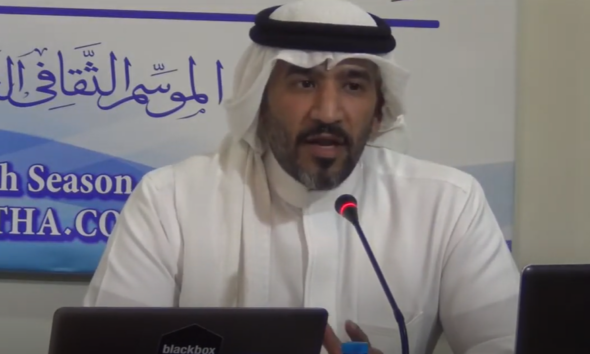
Ahmed Al-Badr the Saudi Businessman
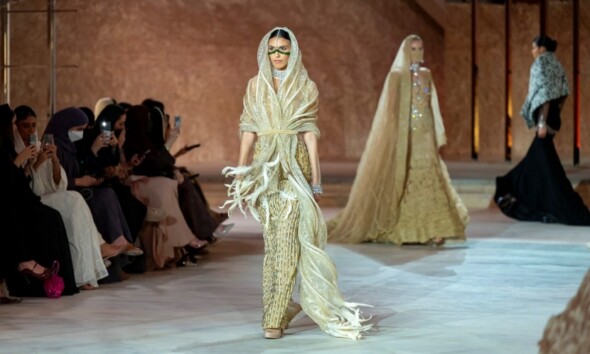
Saudi Designers Ladies’ Role in the Fashion Revival & Vision 2030
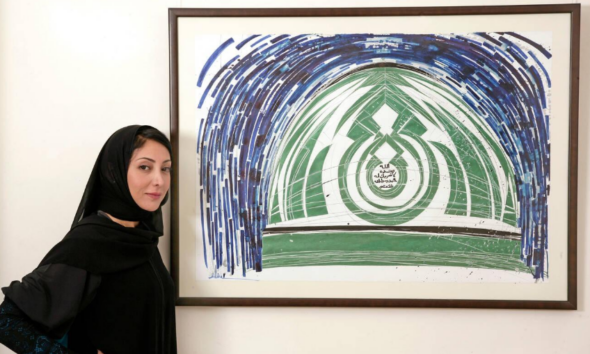
Lina Gazzaz: A Saudi Artist Who Painted History in Modern Colours!
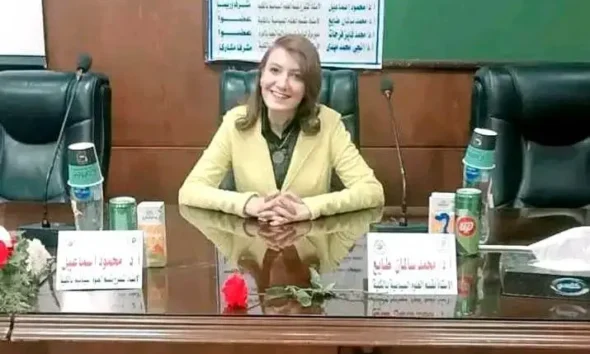
Terrorism Specialist Dr. Shimaa Samir: Multipolarity is Undermining Nuclear Deterrence, and it is Possible to Tame Extremist Ideology!
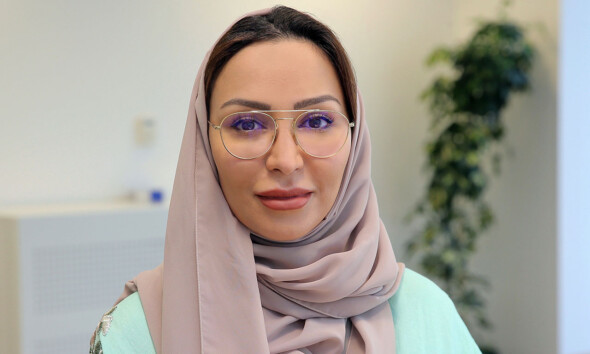
Daniah Orkoubi: A Saudi Entrepreneur and Technological Pioneer
